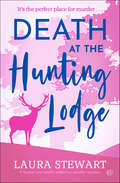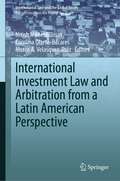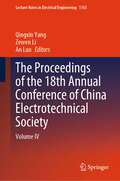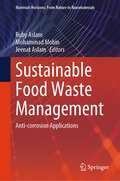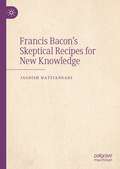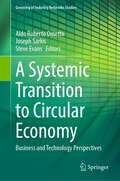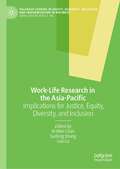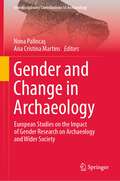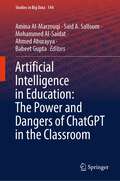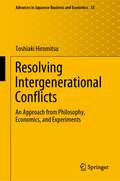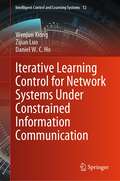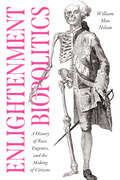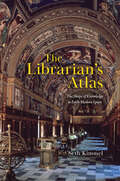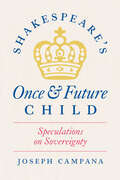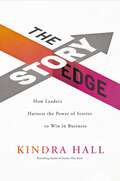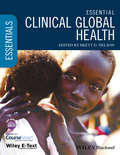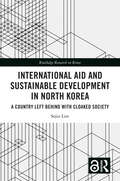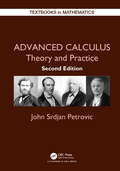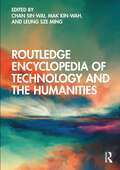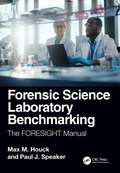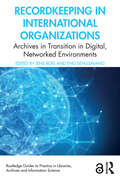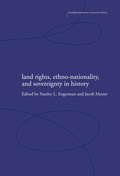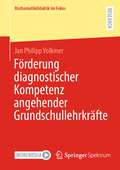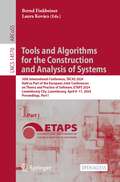- Table View
- List View
Death at the Hunting Lodge: A brand new totally addictive murder mystery (Amelia Adams)
by Laura StewartA Scottish village is turned upside-down by a Gaelic pagan festival, an archaeological dig, and a murder, in this absorbing new cozy mystery. Amelia Adams, proprietor of Stone Manor, is hosting four archaeologists at her luxurious hotel as they excavate a ruined abbey. Meanwhile, the village is preparing for a festival that heralds the start of summer—an event that&’s brought Moira, a tarot reader and practicing white witch, back to her hometown. But relics aren&’t the only things being unearthed—as the locals air resentments about the dig, an old mystery is resurrected and a dead body turns up. Has a peace-loving Wiccan become a predator, or is something deeper going on?
International Investment Law and Arbitration from a Latin American Perspective (International Law and the Global South)
by Nitish Monebhurrun Carolina Olarte-Bácares Marco A. Velasquez-RuizThe book brings to light how Latin American states have traditionally stood before the field of International Investment Law and Arbitration. It delves into their posture of resistance to critically examine how their perspective has gradually changed and how they have adapted and molded their investment agreements so as not to leave their position as players in the field of International Investment Law. Many Latin American states have appeared as defendants before international investment tribunals and some of these, like Venezuela, Bolivia or Ecuador, have denounced their international investment agreements. Deeming the law field as imbalanced, they have looked for alternatives to continue providing legal protection to foreign investors while protecting their right to regulate in the name of public interest. Some interesting investment agreements models, sometimes of a different ilk, have consequently flourished and have arrested the attention of those studying or working with international investment law.The main objective of this book is to critically discuss how Latin American states have accepted, resisted, or adapted themselves to international investment law and arbitration. Accordingly, the general connection between these states and international investment law are explained in an introduction which examines the general trends as per which Latin American states have offered a legal protection to foreign investments. The first part enters the merits of where international investment law and arbitration stand in some Latin American states whereby the experience of Brazil, Chile, Argentina, Venezuela, and Uruguay are discussed. The following parts explain the trends in international investment law and arbitration in Latin America. These trends are namely related to dispute settlement and governance, to the connection between investment law and human rights and finally to regionalization. In these parts, the experience of states like Brazil,Colombia, Peru, and Mexico are perused.
The Proceedings of the 18th Annual Conference of China Electrotechnical Society: Volume IV (Lecture Notes in Electrical Engineering #1165)
by Qingxin Yang Zewen Li An LuoThis book gathers outstanding papers presented at the 18th Annual Conference of China Electrotechnical Society, organized by China Electrotechnical Society (CES), held in Nanchang, China, from September 15 to 17, 2023. It covers topics such as electrical technology, power systems, electromagnetic emission technology, and electrical equipment. It introduces the innovative solutions that combine ideas from multiple disciplines. The book is very much helpful and useful for the researchers, engineers, practitioners, research students, and interested readers.
Sustainable Food Waste Management: Anti-corrosion Applications (Materials Horizons: From Nature to Nanomaterials)
by Ruby Aslam Mohammad Mobin Jeenat AslamThis book highlights established research and technology on corrosion inhibitors and bio-waste management. It further discusses emerging aspects of utilizing food waste in the field of corrosion inhibition. The topics covered include overview on bio-waste and their management, different types of food waste (i.e., agricultural, vegetable and fruit/fruit juice, plant waste, slaughterhouse trash), and their application as corrosion inhibitors and mitigation of corrosion. It also discusses economic aspects and commercialization of food waste as corrosion inhibitors. The book is a valuable reference for beginners, researchers, and professionals working in the areas of sustainability, food waste management, and material science.
Francis Bacon’s Skeptical Recipes for New Knowledge
by Jagdish HattiangadiThe book sets an ambitious goal. It devises a new account of scientific methodology that makes it possible to explain how scientists manage, at least occasionally, to find true models of reality. The new methods may be contrasted with all those currently available that employ “coherence theories” of knowledge. Under this designation are grouped positions that can seem very different (such as those of Poincaré, Duhem, Popper, Hempel, Quine, Kuhn, and Feyerabend) but are united by the idea that the most general statements of science are merely hypotheses. They may be conjectures, opinions, conventions, posits, paradigms, or even myths. The most we can claim to know from such generalities is that they are internally consistent and coherent with empirical data. Consistency is insufficient to establish the truth of a conceptual system because many different systems, perhaps an infinite number, can be logically consistent and cohere with recorded data. Such is the well-known problemof the empirical under-determination of theories. Francis Bacon’s Skeptical Recipes for New Knowledge suggests a new methodology that solves this fundamental problem of knowledge.
A Systemic Transition to Circular Economy: Business and Technology Perspectives (Greening of Industry Networks Studies #12)
by Aldo Roberto Ometto Joseph Sarkis Steve EvansThe book will explore, using multiple perspectives from multiple contributors, two main aspects for circular economy (CE) business and technology (B&T): systems and value perspectives. Going beyond a linear-economic perspective--the traditional perspective--CE needs to develop intentional and integrated paths to help restore physical resources and regenerate the functions of natural and anthropic systems, creating greater economic and social opportunities, with environmentally positive outcomes. Whether this is feasible and possible within the context of CE and B&T is something that will be central to the contributions made in this book. A major objective of the book is to deliver practical and fundamental knowledge of B&T CE insights combining a systems perspective and value creation for socio-technical innovation leading to sustainable transitions and effective transformations. Based on those key aspects, the book is structured in two parts, one from a more theoretical and conceptual basis in Part 1, and a more applied perspective in Part 2. The chapters in Part 1 are presented through the lens of business and systems transitions. In Part 2, the chapters present the opportunities and the journeys from real case studies of companies engaged in circular business strategies, processes, practices, and technologies.
Work-Life Research in the Asia-Pacific: Implications for Justice, Equity, Diversity, and Inclusion (Palgrave Studies in Equity, Diversity, Inclusion, and Indigenization in Business)
by Xi Wen Chan Sudong Shang Luo LuThis book addresses the most pressing and current work-life issues that are impacting Equity, Diversity, and Inclusion (EDI) in organisations across the Asia-Pacific. It is organised around three major themes: (1) Work-life equality and justice; (2) Technology, work, and family; and (3) Work-life values and trends in Asia, all of which will be discussed in relation to EDI. Issues concerning the work-life interface are closely intertwined with issues relating to EDI—for example, labour market inequalities are often fuelled by the interplay of gender, race, and family circumstances. Yet, comparatively lesser attention has been given to the non-work aspects (particularly, the family context) in research on the work-life interface and contemporary EDI issues. Breaking away from a predominantly Western perspective, this volume offers fresh insights and empirical evidence, shedding light on the most urgent and critical work-life challenges faced by people in the Asia-Pacific It also provides deep understanding of the broader social, economic, and political environments shaping work-life trends. It will appeal to researchers and practitioners interested in topics related to human functioning and flourishing at work, at home, and in society.
Gender and Change in Archaeology: European Studies on the Impact of Gender Research on Archaeology and Wider Society (Interdisciplinary Contributions to Archaeology)
by Nona Palincaş Ana Cristina MartinsThis volume presents the various ways in which the study of gender makes a difference in archaeological research, the archaeological academic milieu and the wider public’s thinking about gender and considers avenues of future development. It addresses questions such as why gender matters for archaeology, while examining gender from various angles (including aspects such as subjectivity, embodiment, diet, multifaceted perspectives and intersectionality) and in various periods (prehistory, Ancient Egypt, Roman antiquity, the Middle Ages and the modern and contemporary periods). It also discusses the relationship between archaeology and other academic fields involving the study of gender, as well as representations and debates on gender in the media. The theme ‘gender and change in archeology’ emerged out of concerns voiced within the ‘Archaeology and Gender in Europe’ (AGE) working community of the European Association of Archaeologists (EAA) with respect to thefuture of gender archaeology. This book unites researchers of gender archaeology from two perspectives: that of gender archaeologists from academic milieus where the study of gender has long been established and who in the meantime came to feel that this avenue of inquiry had become predictable and lost its provocative power, and that of gender archaeologists from countries where this field was only recently introduced and who, while more enthusiastic about the utility of gender archaeology, are concerned with how to disseminate it among skeptical peers. Both groups of archaeologists mainly argue that, four decades on, the study of gender in archaeology is still able to generate considerable change in our understanding of past and present-day societies. The volume is primarily of interest to archaeologists and researchers of gender studies.
Artificial Intelligence in Education: The Power and Dangers of ChatGPT in the Classroom (Studies in Big Data #144)
by Amina Al-Marzouqi Said A. Salloum Mohammed Al-Saidat Ahmed Aburayya Babeet GuptaThis book aims to bring together a collection of innovative and cutting-edge research that addresses the various challenges in the application and theoretical aspects of ChatGPT in education. ChatGPT is a large language model developed by OpenAI that has the ability to generate human-like text based on a prompt. This has significant potential for use in the field of education, as it allows for the creation of personalized, interactive learning experiences, automating assessment and grading, and more. In e-learning, ChatGPT is used to provide instant feedback and support to students, as well as generate interactive conversations in the target language for language learning. It is also integrated with existing learning management systems and educational technology platforms to enhance their capabilities. In research, ChatGPT is used for natural language processing and sentiment analysis to gather insights on student learning experiences and educational outcomes. However, it is important to note that there are also ethical and privacy concerns that come with using language models like ChatGPT in education, such as data protection and the potential for bias. Overall, the use of ChatGPT in education has the potential to revolutionize the way we learn, teach, and access information. The book seeks to publish original manuscripts that cover a broad range of topics, from the development of new chatbot technologies and their integration into the classroom, to the examination of the ethical and pedagogical implications of these systems. By compiling the latest developments in the field and highlighting new areas for exploration, this book provides valuable insights and perspectives for researchers, educators, and practitioners working in the field of ChatGPT and education. The ultimate goal is to advance the understanding of ChatGPT and its role in education and to promote its effective and responsible use in the classroom and beyond.
Resolving Intergenerational Conflicts: An Approach from Philosophy, Economics, and Experiments (Advances in Japanese Business and Economics #33)
by Toshiaki HiromitsuThis book is an unprecedented consideration of the challenges of what we can do for generations yet to come. Many growing intergenerational conflicts of interest, such as climate change and fiscal sustainability, are the result of the historically new progress of increasing human power, and the resolution of those conflicts demands a new intergenerational ethic. The book offers fresh new ideas for resolving intergenerational conflicts through the exploration of an entirely new field, conceptualized in philosophy, developed in economics, and tested in experiments. In particular, this work develops the theory of intergenerational cooperation based on a new relationship of direct reciprocity between generations. From experimental results, the possibility of intergenerational cooperation through Kantian categorical imperative is shown. The book also examines the effectiveness of inviting representatives of future generations, which are called "imaginary future generations", into the deliberations for current policy decisions. The original Japanese edition of this book was awarded the 66th Nikkei Prize for Excellent Books in Economic Science. The prize was established in 1958 to contribute to the advancement of academics and knowledge in the fields of economics, management, and accounting, as well as to its general dissemination and application.
Iterative Learning Control for Network Systems Under Constrained Information Communication (Intelligent Control and Learning Systems #12)
by Wenjun Xiong Zijian Luo Daniel W. HoThis book focuses on the subject area of Network Systems and Control Theory, providing a comprehensive examination of the dynamic behavior of networked systems operating under communication constraints. It introduces innovative iterative learning control strategies that aim to ensure stability, consistency, and security of networked systems. The field of networked systems has garnered significant interest from scientists and engineers across various disciplines, including information, electrical, transportation, life, social, and management sciences. This book consistently addresses a wide range of issues related to networked systems, emphasizing the critical impact of communication constraints on stability and security. It highlights the effectiveness and importance of iterative learning methods in tackling these challenges.Suitable for both undergraduate and graduate students interested in networked systems and iterative learning control, this book alsoserves as a valuable resource for university faculty and engineers engaged in complex systems, control theory research, and real-world applications. Its broad appeal extends to professionals working in related fields, seeking a deeper understanding of networked systems and their control mechanisms.
Enlightenment Biopolitics: A History of Race, Eugenics, and the Making of Citizens (The Life of Ideas)
by William Max NelsonA wide-ranging history tracing the birth of biopolitics in Enlightenment thought and its aftermath. In Enlightenment Biopolitics, historian William Max Nelson pursues the ambitious task of tracing the context in which biopolitical thought emerged and circulated. He locates that context in the Enlightenment when emancipatory ideals sat alongside the horrors of colonialism, slavery, and race-based discrimination. In fact, these did not just coexist, Nelson argues; they were actually mutually constitutive of Enlightenment ideals. In this book, Nelson focuses on Enlightenment-era visions of eugenics (including proposals to establish programs of selective breeding), forms of penal slavery, and spurious biological arguments about the supposed inferiority of particular groups. The Enlightenment, he shows, was rife with efforts to shape, harness, and “organize” the minds and especially the bodies of subjects and citizens. In his reading of the birth of biopolitics and its transformations, Nelson examines the shocking conceptual and practical connections between inclusion and exclusion, equality and inequality, rights and race, and the supposed “improvement of the human species” and practices of dehumanization.
The Librarian's Atlas: The Shape of Knowledge in Early Modern Spain
by Seth KimmelA history of early modern libraries and the imperial desire for total knowledge. Medieval scholars imagined the library as a microcosm of the world, but as novel early modern ways of managing information facilitated empire in both the New and Old Worlds, the world became a projection of the library. In The Librarian’s Atlas, Seth Kimmel offers a sweeping material history of how the desire to catalog books coincided in the sixteenth and seventeenth centuries with the aspiration to control territory. Through a careful study of library culture in Spain and Morocco—close readings of catalogs, marginalia, indexes, commentaries, and maps—Kimmel reveals how the booklover’s dream of a comprehensive and well-organized library shaped an expanded sense of the world itself.
Shakespeare's Once and Future Child: Speculations on Sovereignty
by Joseph CampanaA study of Shakespeare’s child figures in relation to their own political moment, as well as our own. Politicians are fond of saying that “children are the future.” How did the child become a figure for our political hopes? Joseph Campana’s book locates the source of this idea in transformations of childhood and political sovereignty during the age of Shakespeare, changes spectacularly dramatized by the playwright himself. Shakespeare’s works feature far more child figures—and more politically entangled children—than other literary or theatrical works of the era. Campana delves into this rich corpus to show how children and childhood expose assumptions about the shape of an ideal polity, the nature of citizenship, the growing importance of population and demographics, and the question of what is or is not human. As our ability to imagine viable futures on our planet feels ever more limited, and as children take up legal proceedings to sue on behalf of the future, it behooves us to understand the way past child figures haunt our conversations about intergenerational justice. Shakespeare offers critical precedents for questions we still struggle to answer.
The Story Edge: How Leaders Harness the Power of Stories to Win in Business
by Kindra HallA holistic approach to innovation, connection, and problem-solving that has no expiration date.Our stories allow us to explore our greatest desires and fears, connect with others on a deeper level, and gain a sense of clarity and purpose. In an era of chaotic change and high-pressure decision-making, Kindra Hall—author of Stories That Stick—has a message that runs counter to much of the business acumen of the day: Now more than ever, good storytelling is a critical part of successful leadership.From corporate initiatives and marketing strategies to scientific research and innovation, stories are the key ingredient to engaging audiences, building consensus, and inspiring action. The Story Edge will show you:Why storytelling is an essential part of being human.How to find and leverage the story in every situation.How to use story as a tool for positive social impact.How to craft your story in order to leave a lasting legacy.Hall masterfully interweaves storytelling theory with practical business scenarios, creating an engaging guide for present and future leaders. You'll learn how to embrace the art of storytelling and how to consider all angles of the story in every situation.If there's one thing that will remain true—despite all the transformations we experience in business, culture, and innovation—it's the importance of story. Why? Because story is the original algorithm, the true universal language. And it's one of the most important tools we, as humans, have.
Essential Clinical Global Health (Essentials)
by Brett D. NelsonEssential Clinical Global Health is a brand-new, pioneering, and evidence-based textbook that provides a clinical overview of the increasingly prominent specialty of global health. Originally developed from a course at Harvard Medical School, and now with contributions from nearly 100 world-renowned global health experts from across the globe, this textbook presents vital information required of students, trainees, and clinicians during their international experiences and training. Essential Clinical Global Health introduces readers to the up-to-date knowledge, skills, and approaches needed for productive and rewarding global health experiences. It provides essential clinical information on the diagnosis, management, and prevention of the leading causes of morbidity and mortality in low- and middle-income countries. The textbook also includes practical guidance on topics such as health systems, population-based approaches, cultural awareness and sensitivity, travel preparedness and safety, and career development in global health. With key learning objectives in each chapter, practical clinical advice, setting-appropriate guidelines, personal field experiences from student and clinician contributors, Essential Clinical Global Health is the first global health textbook with a clinical focus for healthcare students, trainees, and providers.A companion website at www.wileyessential.com/globalhealth features self-assessment questions and videos.
International Aid and Sustainable Development in North Korea: A Country Left Behind with Cloaked Society (Routledge Research on Korea)
by Sojin LimThis book examines international aid in North Korea, in particular the ongoing policy of withholding aid, through the lens of the impact on the general population to present an argument for sustainable development.Focusing on the human rights of North Koreans and presenting a case for the use of aid as a provision for social change, it explores an alternative narrative to the existing long-drawn-out rhetoric of ‘denuclearisation-first’. The book’s scope includes evaluations of the causes of international sanctions and their impact, the Kim regime’s mitigation of sanctions through marketisation and a digital economy as well as barriers to aid monitoring and the reason for the absence of any mass anti-regime movement. It also posits that North Korea is a fragile state but cloaked by the image of a strong regime.The book succinctly demonstrates that the key to unlocking the potential of North Korea’s ‘cloaked society’ does not lie in sanctions, but is to be found in engagement with development aid. As such it will appeal to students of Korean Studies, Development Studies, Asian Politics and International Relations.The Open Access version of this book, available at http://www.taylorfrancis.com, has been made available under a Creative Commons [Attribution-Non Commercial-No Derivatives (CC-BY-NC-ND)] 4.0 license.
Advanced Calculus: Theory and Practice (Textbooks in Mathematics #12)
by John PetrovicAdvanced Calculus: Theory and Practice, Second Edition offers a text for a one- or two-semester course on advanced calculus or analysis. The text improves students’ problem-solving and proof-writing skills, familiarizes them with the historical development of calculus concepts, and helps them understand the connections among different topics. The book explains how various topics in calculus may seem unrelated but have common roots. Emphasizing historical perspectives, the text gives students a glimpse into the development of calculus and its ideas from the age of Newton and Leibniz to the twentieth century. Nearly 300 examples lead to important theorems.Features of the Second Edition: Improved Organization. Chapters are reorganized to address common preferences. Enhanced Coverage of Axiomatic Systems. A section is added to include Peano’s system of axioms for the set of natural numbers and their use in developing the well-known properties of the set N. Expanded and Organized Exercise Collection. There are close to 1,000 new exercises, many of them with solutions or hints. Exercises are classified based on the level of difficulty. Computation-oriented exercises are paired and solutions or hints provided for the odd-numbered questions. Enrichment Material. Historical facts and biographies of over 60 mathematicians. Illustrations. Thirty-five new illustrations are added in order to guide students through examples or proofs. About the Author:John Srdjan Petrovic is a professor at Western Michigan University.
Routledge Encyclopedia of Technology and the Humanities
by Chan Sin-Wai Mak Kin-Wah Leung Sze MingRoutledge Encyclopedia of Technology and the Humanities is a pioneer attempt to introduce a wide range of disciplines in the emerging field of techno-humanities to the English-reading world.This book covers topics such as archaeology, cultural heritage, design, fashion, linguistics, music, philosophy, and translation. It has 20 chapters, contributed by 26 local and international scholars. Each chapter has its own theme and addresses issues of significant interest in the respective disciplines. References are provided at the end of each chapter for further exploration into the literature of the relevant areas. To facilitate an easy reading of the information presented in this volume, chapters have been arranged according to the alphabetical order of the topics covered.This Encyclopedia will appeal to researchers and professionals in the field of technology and the humanities, and can be used by undergraduate and graduate students studying the humanities.
Lorenzo Allegri: Il primo libro delle musiche. . . (Venice, 1618) (Italian Instrumental Music of the Sixteenth and Seventeenth Centuries)
by Andrew Dell’AntonioFirst Published in 1995. Il primo libro delle musiche (Venice, 1618)
Forensic Science Laboratory Benchmarking: The FORESIGHT Manual
by Max M. Houck Paul J. SpeakerForensic Science Laboratory Benchmarking: The FORESIGHT Manual takes a step-by-step instructional approach to utilizing FORESIGHT data, detailing how labs can participate in the process to improve efficiencies. The FORESIGHT Project—a business benchmarking process for forensic service providers—was created in 2008 to collect and report data while offering improvement to processes through analysis, comparisons, and best practice evaluations. The program has grown to include more than 200 participating forensic laboratories worldwide.FORESIGHT offers the capability for labs to improve core functions, provide and benefit from metrics, and thus, improve the labs capabilities and functioning for the public good, while maintaining their often limited, fixed budgets. Due to ever-increasing caseloads, forensic laboratories are constantly plagued by backlogged casework—cases submitted to the laboratory but not yet worked. This leads to inefficiencies, delays, and unhappy agencies expecting timely results. Unfortunately, even if a lab’s slates were wiped clean and the backlog were erased, many of the inefficient processes—that created the backlog—would still be in place. Eventually, and inevitably, the lab would develop a new backlog.Unique coverage and features: Presents critical and proven cutting-edge measures to utilize FORESIGHT data improve laboratory testing, operational efficiency, and policies without added additional costs. Synthesizes the data input from more than 200 labs and a decade’s worth of analytics to illustrate process improvements and the advantages of participating. Outlines how to develop data-driven responses to solve current and future problems. Forensic Science Laboratory Benchmarking will be of interest to quality assurance specialists, economists, supervisors in the parent agencies of the labs, managers at all levels of any of the hundreds of public laboratories around the world, and anyone concerned about the effectiveness and efficiency of laboratory testing. As an operational guide, the book provides a helpful roadmap to help public science agencies and forensic labs analyze how they operate, improve on what works, and change what doesn’t to better meet their mission and serve their community’s goals.
Recordkeeping in International Organizations: Archives in Transition in Digital, Networked Environments (Routledge Guides to Practice in Libraries, Archives and Information Science)
by Jens Boel Eng SengsavangRecordkeeping in International Organizations offers an important treatment of international organizations from a recordkeeping perspective, while also illustrating how recordkeeping can play a vital role in our efforts to improve global social conditions.Demonstrating that organizations have both a responsibility and an incentive to effectively manage their records in order to make informed decisions, remain accountable to stakeholders, and preserve institutional history, the book offers practical insights and critical reflections on the effective management, protection, and archiving of records. Through policy advice, surveys, mind mapping, case studies, and strategic reflections, the book provides guidance in the areas of archives, records, and information management for the future. Among the topics addressed are educational requirements for recordkeeping professionals, communication policies, data protection and privacy, cloud computing, classification and declassification policies, artificial intelligence, risk management, enterprise architecture, and the concepts of extraterritoriality and inviolability of archives. The book also offers perspectives on how digital recordkeeping can support the UN’s 2030 Agenda for Sustainable Development, and the accompanying Sustainable Development Goals (SDGs).Recordkeeping in International Organizations will be essential reading for records and archives professionals, information technology, legal, security, management, and leadership staff, including chief information officers. The book should also be of interest to students and scholars engaged in the study of records, archives, and information management, information technology, information security, and law.Chapters 7 and 9 of this book are freely available as a downloadable Open Access PDF at http://www.taylorfrancis.com under a Attribution-NonCommercial-ShareAlike (CC-BY-NC-SA) 4.0 license
Land Rights, Ethno-nationality and Sovereignty in History (Routledge Explorations in Economic History)
by Stanley L. Engerman Jacob MetzerEngerman is one of the world's best known economic historiansThe book analyses the thorny issue of property rights and ethno-nationality across a range of countriesThe approach uses econometrics
Förderung diagnostischer Kompetenz angehender Grundschullehrkräfte (Mathematikdidaktik im Fokus)
by Jan Philipp VolkmerDiagnostische Kompetenz ist eine der zentralen Kompetenzen von Lehrkräften. Diese Kompetenz hängt von der jeweiligen diagnostischen Situation ab. Das Analysieren von reichhaltigen Schüler*innendokumenten, wie sie zum Beispiel bei der Bearbeitung offener Lernangebote entstehen, wurde als diagnostische Situation bisher kaum betrachtet. Das vorliegende Buch widmet sich daher der Operationalisierung und Förderung diagnostischer Kompetenz bezüglich der Analyse von Schüler*innendokumenten zu offenen Lernangeboten der Arithmetik. Dazu wird eine Operationalisierung der diagnostischen Kompetenz und insbesondere des diagnostichen Denkens als Synthese bisheriger Forschung vorgeschlagen. Die Operationalisierung stützt sich auf die Adaption epistemischer Aktivitäten und einen adaptierten Prozess des Anpassens und Vergleichens. Weiter werden zwei empirische Studien vorgestellt, die die Wirksamkeit verschiedener Interventionen zur Förderung diagnostischer Kompetenz nachweisen können.
Tools and Algorithms for the Construction and Analysis of Systems: 30th International Conference, TACAS 2024, Held as Part of the European Joint Conferences on Theory and Practice of Software, ETAPS 2024, Luxembourg City, Luxembourg, April 6–11, 2024, Proceedings, Part I (Lecture Notes in Computer Science #14570)
by Bernd Finkbeiner Laura KovácsThe open access book 3-volume set LNCS 14570-14573 constitutes the proceedings of the 30th International Conference on Tools and Algorithms for the Construction and Analysis of Systems, TACAS 2024, which was held as part of the European Joint Conferences on Theory and Practice of Software, ETAPS 2024, during April 6-11, 2024, in Luxembourg.The 53 full papers and 16 short SVComp contributions included in these proceedings were carefully reviewed and selected from 159 submissions. They were organized in topical sections as follows:Part I: STA and SMT solving; synthesis; logic and decidability; program analysis and proofs; proof checking; Part II: Model Checking; automata and learning; software verification; probabilistic systems; simulations; Part III: Neural networks; testing and verification; games; concurrency; SV-Comp 2024.
